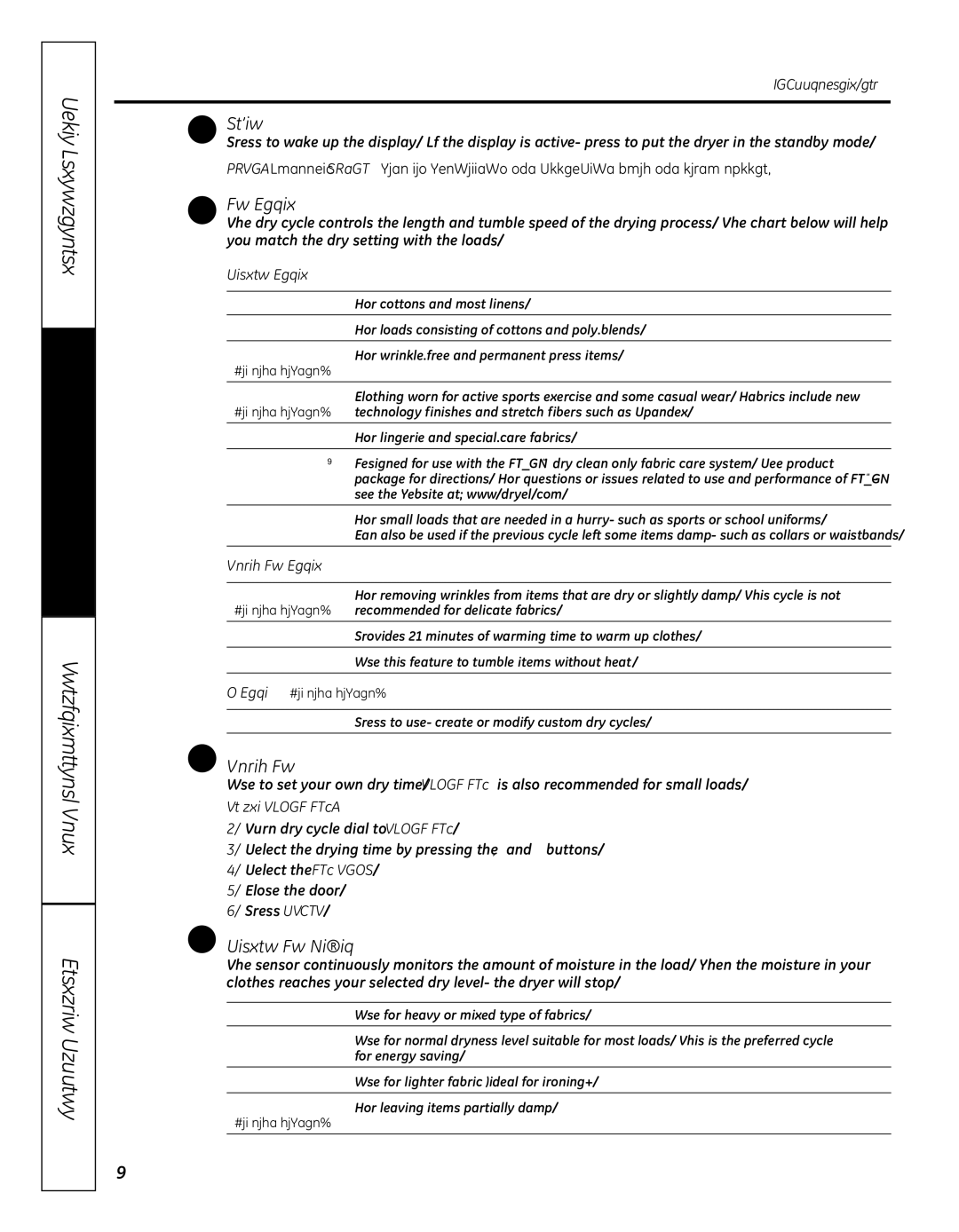
Safety Instructions
Operating Instructions
Troubleshooting Tips
Consumer Support
8
GEAppliances.com
1 Power
Press to “wake up” the display. If the display is active, press to put the dryer in the standby mode.
NOTE: Pressing POWER does not disconnect the appliance from the power supply.
2 Dry Cycles
The dry cycle controls the length and tumble speed of the drying process. The chart below will help you match the dry setting with the loads.
Sensor Cycles
COTTONS | For cottons and most linens. |
|
|
MIXED LOAD | For loads consisting of cottons and |
|
|
EASY CARE | For |
(on some models) |
|
|
|
ACTIVE WEAR | Clothing worn for active sports exercise and some casual wear. Fabrics include new |
(on some models) | technology finishes and stretch fibers such as Spandex. |
|
|
DELICATES | For lingerie and |
|
|
DRYEL™ | Designed for use with the DRYEL™ “dry clean only” fabric care system. See product |
| package for directions. For questions or issues related to use and performance of DRYEL™, |
| see the Website at: www.dryel.com. |
|
|
SPEED DRY | For small loads that are needed in a hurry, such as sports or school uniforms. |
| Can also be used if the previous cycle left some items damp, such as collars or waistbands. |
|
|
Timed Dry Cycles
DEWRINKLE | For removing wrinkles from items that are dry or slightly damp. This cycle is not |
(on some models) | recommended for delicate fabrics. |
|
|
WARM UP | Provides 10 minutes of warming time to warm up clothes. |
|
|
AIR FLUFF | Use this feature to tumble items without heat. |
|
|
My Cycle (on some models)
MY CYCLE Press to use, create or modify custom dry cycles.
3Timed Dry
Use to set your own dry time. TIMED DRy is also recommended for small loads.
To use TIMED DRy:
1.Turn dry cycle dial to TIMED DRy.
2.Select the drying time by pressing the + and – buttons.
3.Select the DRy TEMP.
4.Close the door.
5.Press START.
4Sensor Dry level
The sensor continuously monitors the amount of moisture in the load. When the moisture in your clothes reaches your selected dry level, the dryer will stop.
MORE DRY Use for heavy or mixed type of fabrics.
DRY Use for normal dryness level suitable for most loads. This is the preferred cycle for energy saving.
LESS DRY Use for lighter fabric (ideal for ironing).
DAMP For leaving items partially damp. (on some models)
